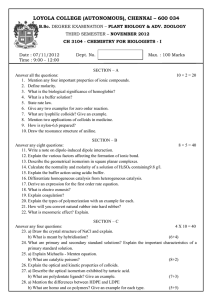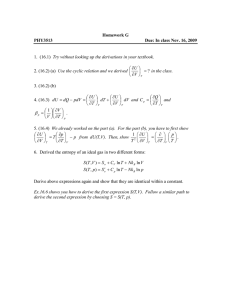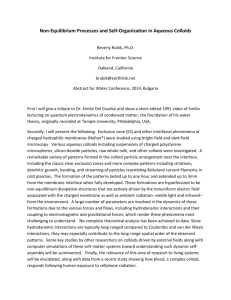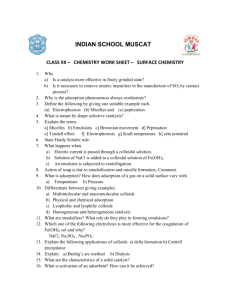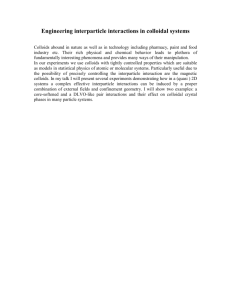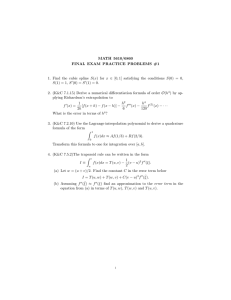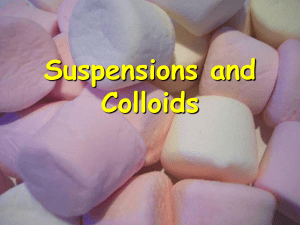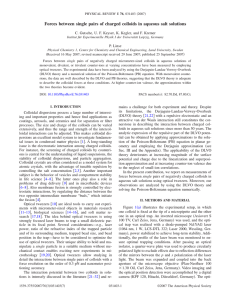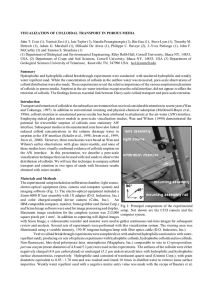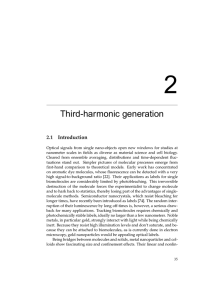LOYOLA COLLEGE (AUTONOMOUS), CHENNAI – 600 034
advertisement
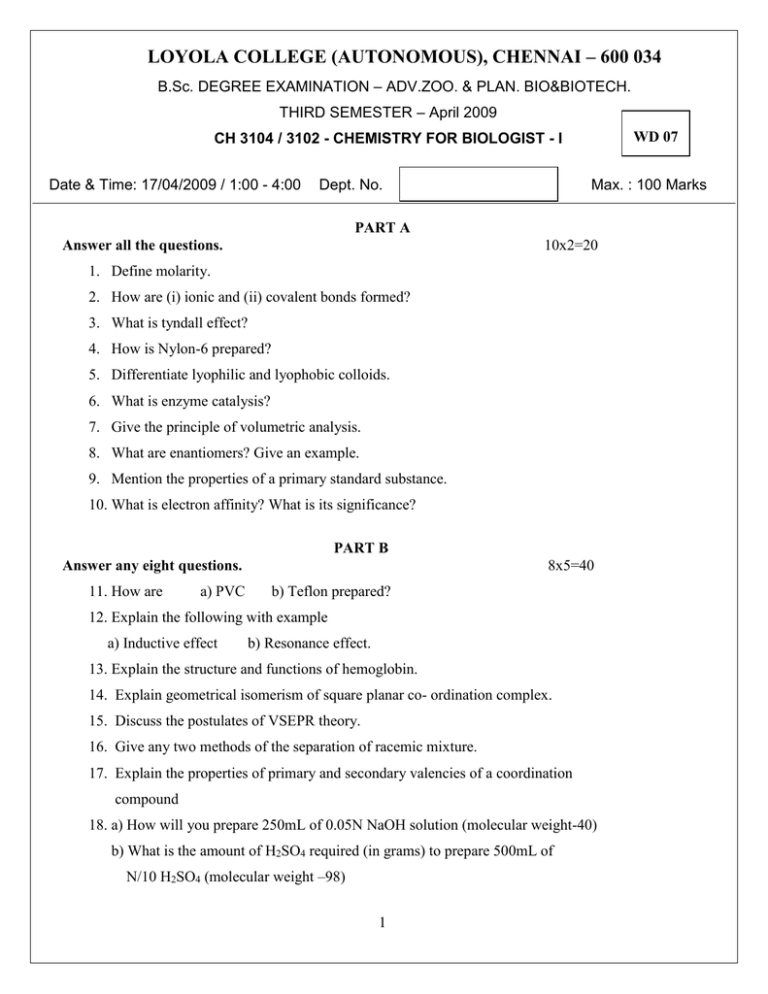
LOYOLA COLLEGE (AUTONOMOUS), CHENNAI – 600 034 B.Sc. DEGREE EXAMINATION – ADV.ZOO. & PLAN. BIO&BIOTECH. THIRD SEMESTER – April 2009 WD 07 CH 3104 / 3102 - CHEMISTRY FOR BIOLOGIST - I Date & Time: 17/04/2009 / 1:00 - 4:00 Dept. No. Max. : 100 Marks PART A Answer all the questions. 10x2=20 1. Define molarity. 2. How are (i) ionic and (ii) covalent bonds formed? 3. What is tyndall effect? 4. How is Nylon-6 prepared? 5. Differentiate lyophilic and lyophobic colloids. 6. What is enzyme catalysis? 7. Give the principle of volumetric analysis. 8. What are enantiomers? Give an example. 9. Mention the properties of a primary standard substance. 10. What is electron affinity? What is its significance? PART B Answer any eight questions. 11. How are a) PVC 8x5=40 b) Teflon prepared? 12. Explain the following with example a) Inductive effect b) Resonance effect. 13. Explain the structure and functions of hemoglobin. 14. Explain geometrical isomerism of square planar co- ordination complex. 15. Discuss the postulates of VSEPR theory. 16. Give any two methods of the separation of racemic mixture. 17. Explain the properties of primary and secondary valencies of a coordination compound 18. a) How will you prepare 250mL of 0.05N NaOH solution (molecular weight-40) b) What is the amount of H2SO4 required (in grams) to prepare 500mL of N/10 H2SO4 (molecular weight –98) 1 19. What are the properties of ionic and covalent compounds? 20. Write short notes on a) peptisation b) polymerisation. 21. Derive an expression for the half life period for first order reaction from its rate Expression. 22. a) Arrange the following in the increasing order of strength of acid giving reasons: (i) CH3COOH (ii) CCl3COOH (iii) CF3COOH (iv) HCOOH b) Arrange the following in the increasing order of strength of the base giving reasons: (i) NH3 (ii) CH3NH2 (iii) (CH3)2NH (iv) (CH3)3N PART C Answer any four questions. 4X10=40 23. Draw and explain the crystal structures of NaCl and CsCl. 24. a) Write short notes on Dissociation constant of acids. b) What is buffer solution? Derive Henderson equation for acidic buffer. 25. Derive the rate constant for the second order reaction involving same initial concentration of the reactant. 26. Discuss any three methods of preparation of colloids. 27. Explain the hybridization in NH3, H2O and BeCl2 and predict the geometry of these molecules. 28. a) Explain the intermolecular and intramolecular hydrogen bonding. b) Discuss the application of colloids. ***** 2
